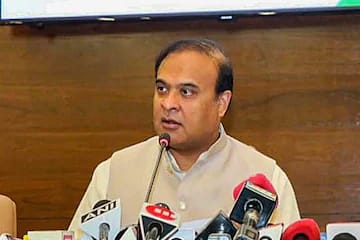The Assam government has taken a decisive step towards addressing the issue of polygamy in the region by announcing the formation of an expert committee. The Muslim Personal Law (Shariat) Act of 1973 and Article 25 of the Indian Constitution, which deals with the directive principle of a uniform civil code, will be the main topics of the committee’s investigation into the state government’s ability to forbid polygamy, according to Chief Minister Himanta Biswa Sarma.
The committee will have in-depth consultations with numerous stakeholders, including legal professionals, to achieve a judgement that is well-informed. In particular, Chief Minister Sarma emphasised the importance of tackling the polygamy issue in places like Barak Valley, Hojai, and Jamunamuk. It was discovered that many elderly people had many spouses who were under the marriageable age during recent efforts to stop child marriage. According to Sarma, outlawing polygamy is necessary to prevent underage marriage and defend the rights of women.
The group, whose work is due to start soon, will actively solicit public feedback and assess pertinent legal provisions. Sarma emphasised that monogamy was preferred by the Prophet Mohamed to demonstrate that polygamy is not a fundamental aspect of Islam. Sarma underlined that the committee’s focus would be only on polygamy and not the more general concept of a unified civil code, while noting that certain individuals in Assamese tribal groups practise polygamy on an individual basis.
This move follows the Chief Minister’s prior assertion that a universal civil code must be implemented in order to prevent polygamy and protect the rights of Muslim women. Sarma emphasised that polygamy will continue in the absence of the standard civil law, letting males to have many wives and robbing women of their rights.
An attorney from the Guwahati High Court named Zunaid Khaleed noted that the Quranic phrase in question really reads, “Marry such women as seems good to you… twice, thrice, or four times.” If you can’t do it right, then only get married once.
The Assam government has shown its commitment to properly addressing this issue by deciding to form an expert committee and conduct a thorough investigation into polygamy. The committee seeks to reach a well-informed and impartial conclusion that is consistent with the values of justice and equality for everyone by consulting with stakeholders and reviewing pertinent legislative frameworks.

